MGM Resorts
A VR security training program using 3D "Digital Twin" technology
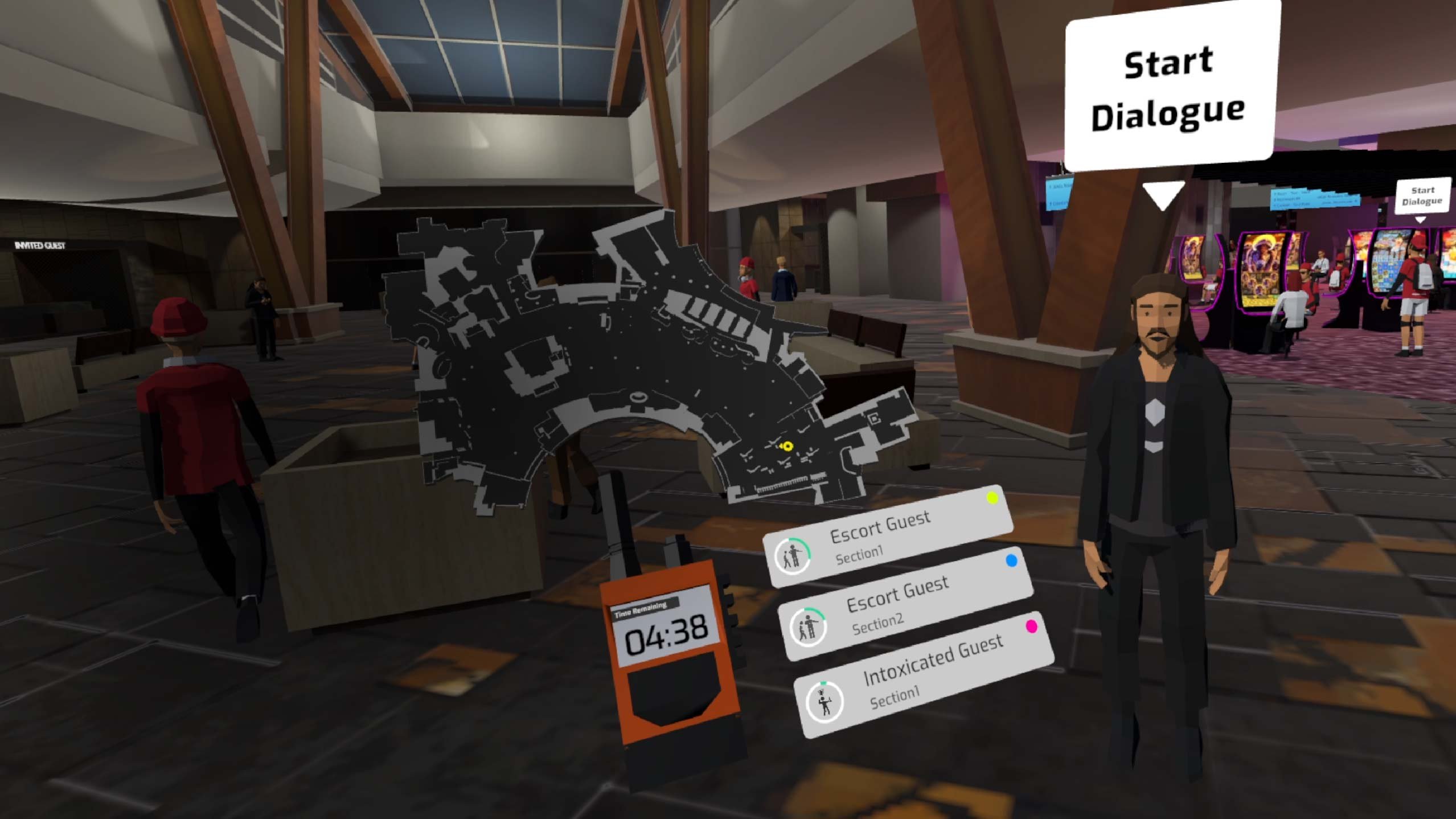
MGM Resorts is a leading force in entertainment and hospitality, bringing exceptional experiences to their guests across the globe.
Behind those exceptional experiences are MGM Resorts’ people – their extensive team of front-of-house staff, security personnel, and more. MGM Resorts realized that by leveraging emerging technologies, they could help their staff perform at their best. They asked ustwo to define, design, and build a digital tool that would support their employees in delivering a differentiated guest experience.
So, we built a VR security training program using 3D “Digital Twin” technology that transforms traditional employee training into a more positive, effective, and fun learning experience.
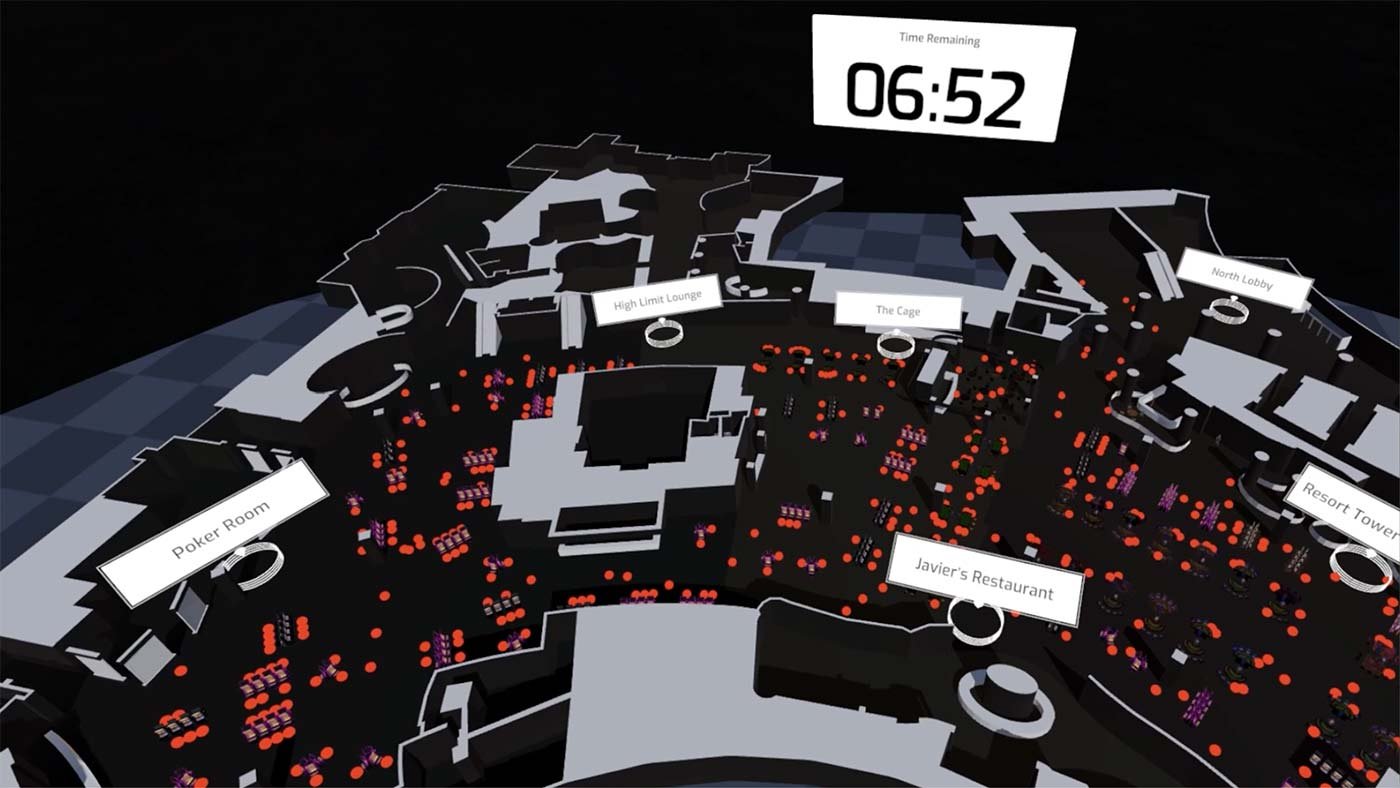
The Opportunity
Immersive technology is often limited to use cases involving recreation and entertainment, but it in fact holds incredible potential as a powerful business tool to generate value and reduce cost.
As you’d expect, creating a best-in-class team requires extensive employee training. Staff must feel prepared to enter into diverse interactions with guests, as well as navigate the large physical spaces of MGM Resorts. This realization soon led us to an essential use case for our client – leveraging immersive technology to support employee training for MGM Resorts’ vast security team.
When you have fun, you stay engaged. When you stay engaged, you learn better. By weaving game design into a VR training experience, we enable security staff to learn more efficiently, leaving them better prepared for the complex interactions and demands of their job. And well-prepared employees deliver superior guest experiences – the ultimate goal of MGM Resorts. As a bonus, the VR program reduces the resources spent on employee training, in both time and cost.
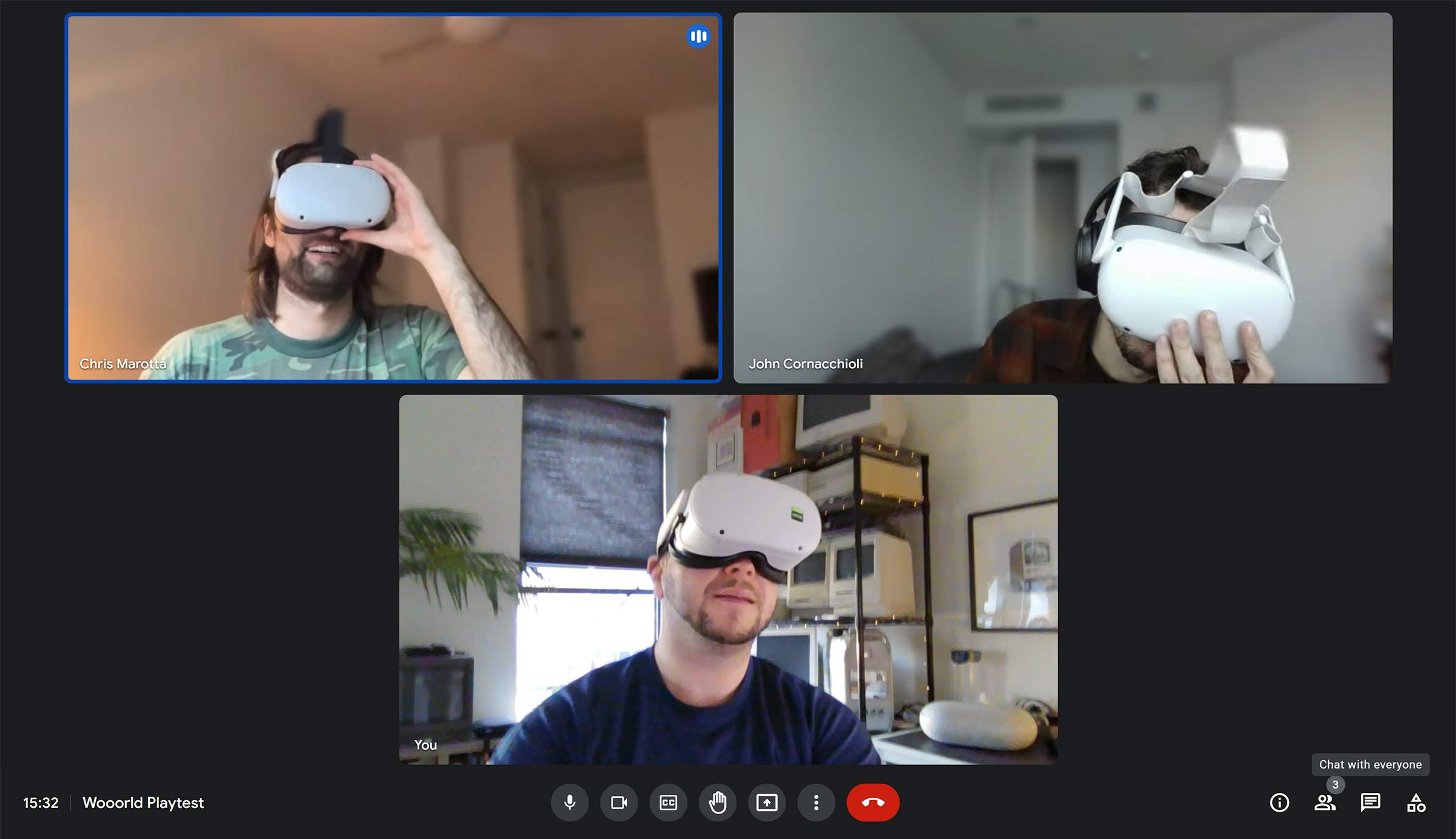
The Fun Stuff
By building a 3D "Digital Twin" of one of MGM Resorts’ key properties, we could create a training program that closely mirrored real life scenarios. A Digital Twin is a virtual representation of a physical object or system – in this case, a digital-world replica of The Aria, a flagship MGM Resorts property.
The Digital Twin allowed us to simulate realistic scenarios for the purposes of security training in a safe, controlled virtual space. For instance, we could expose trainees to common situations they’d confront on the job, including navigation, guest interactions, and de-escalation strategies.
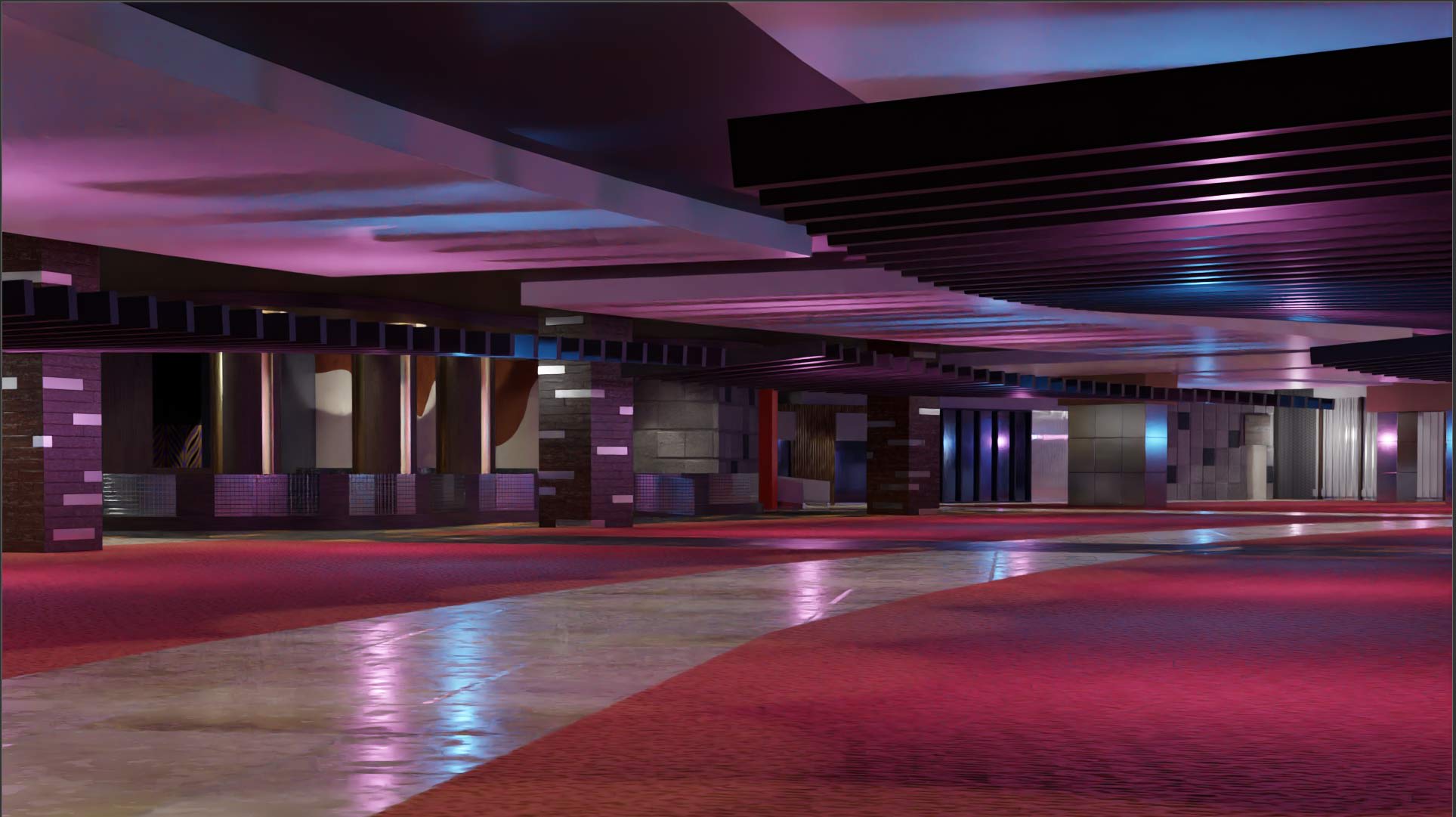
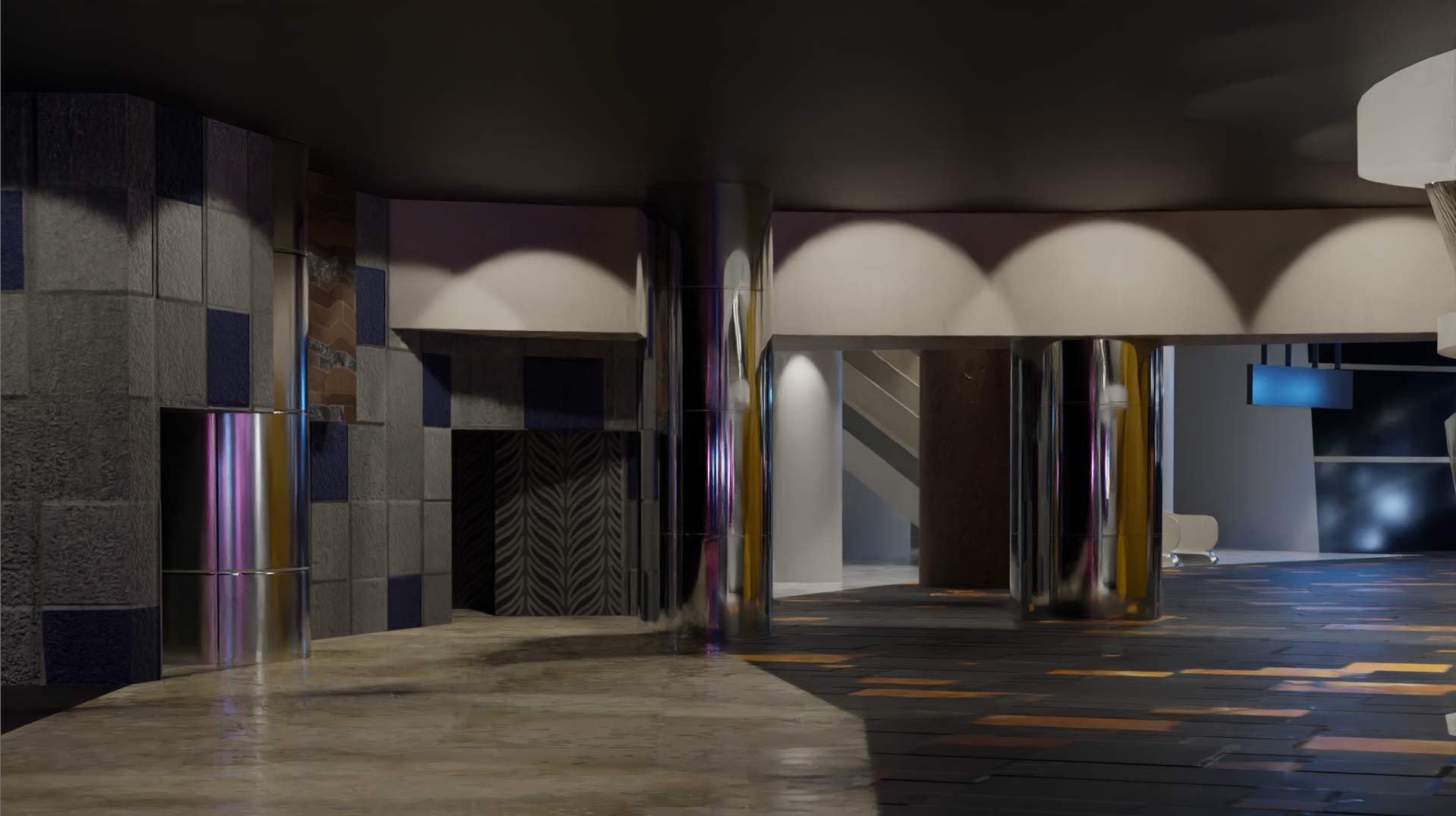
Building a Digital Twin is no small feat. We began with a two-week immersion phase to gain deep perspective into processes and pain points within the security team.
We made visits to the property in the dead of night, capturing it in excruciating detail in order to rebuild it precisely in the digital world. A few weeks into planning, defining, and research, we’d developed a clear and holistic understanding of what our product needed to accomplish, and we were ready to prototype and test.
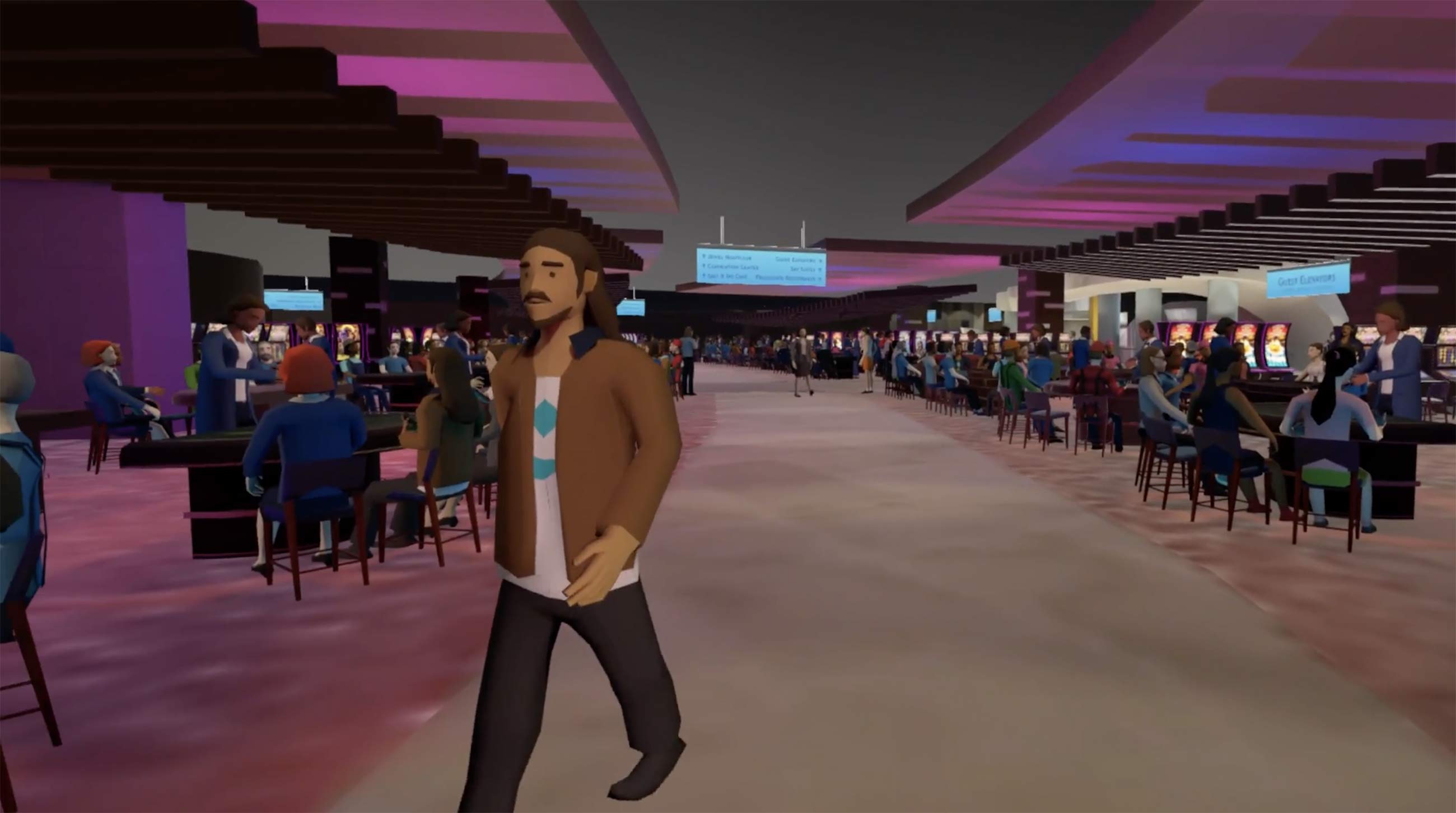
After building the virtual replica of the physical space, we populated it with hundreds of 3D bots. We programmed these “bot guests” with a simple human behavior AI system – they wander the casino, sit at tables, and walk towards restrooms and exits just as guests would in real life.
We then used generative AI tools, such as ElevenLab’s Speech Synthesis API, to give our digital guests naturalistic voices capable of expressing a spectrum of emotion. This extra layer of AI-driven realism granted our “bot guests” the lifelike ability to act out common guest interactions and carry convincing conversations with trainees.
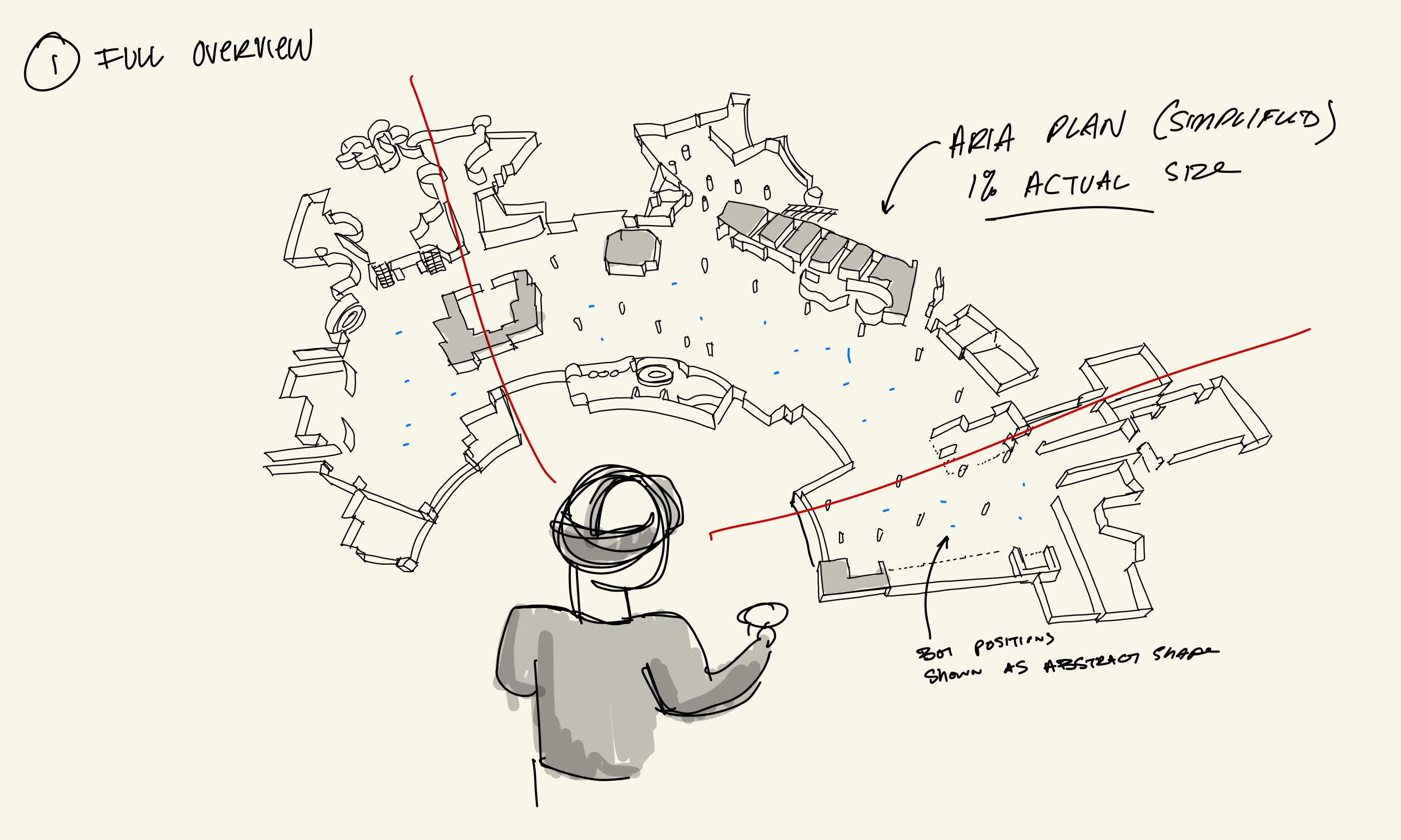
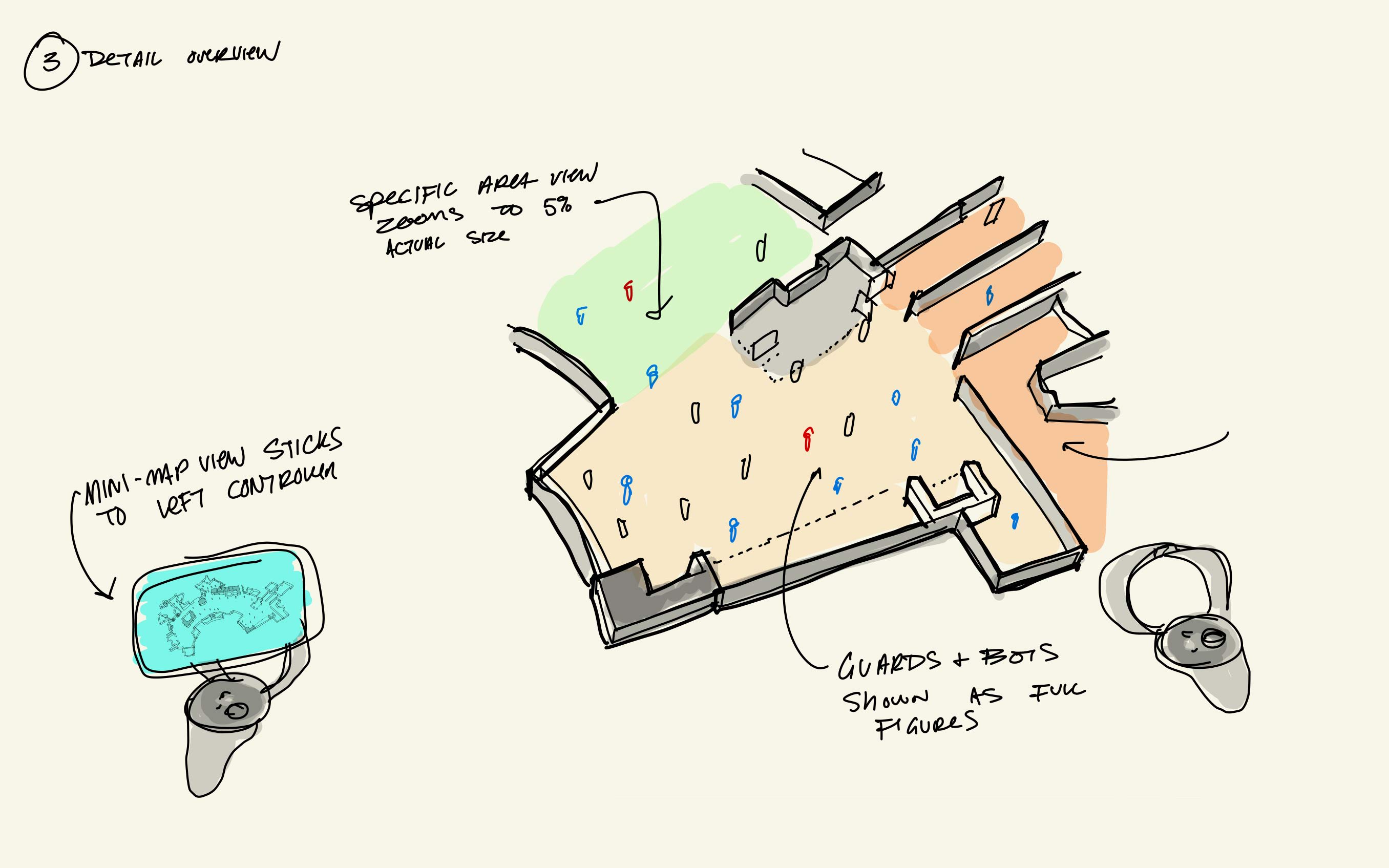
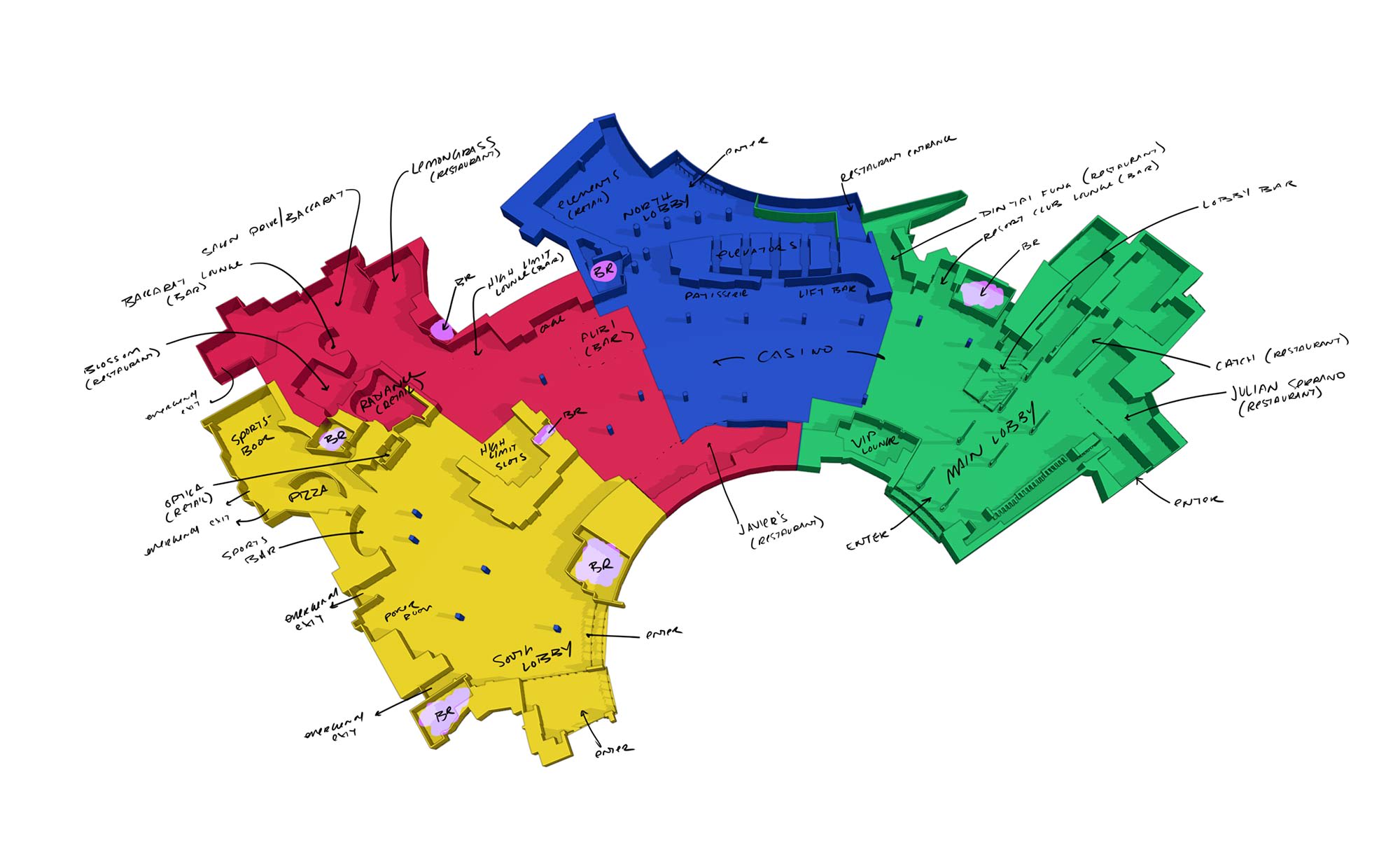
As part of their security training, employees enter the Digital Twin of the Aria, moving around the VR space to both familiarize themselves with the location, and also practice various scenarios likely to occur on the job. As trainees test themselves across situations, they’re motivated by a points-based system we designed in the context of MGM Resorts’ values and goals.
Depending on the choices they make while navigating interactions with meta-guests, trainees can either gain or lose points, eventually receiving a score card that measures their success and tracks their progress.
In essence, we used game design principles, real-time 3D, and AI/XR tools to create a novel kind of security training program that feels more immersive and exciting. Rather than sitting through lengthy videos, winding passages of text, or multiple choice questions, trainees can now directly test their skills in a fun, engaging space where they’re safe to fail, learn, and try again.
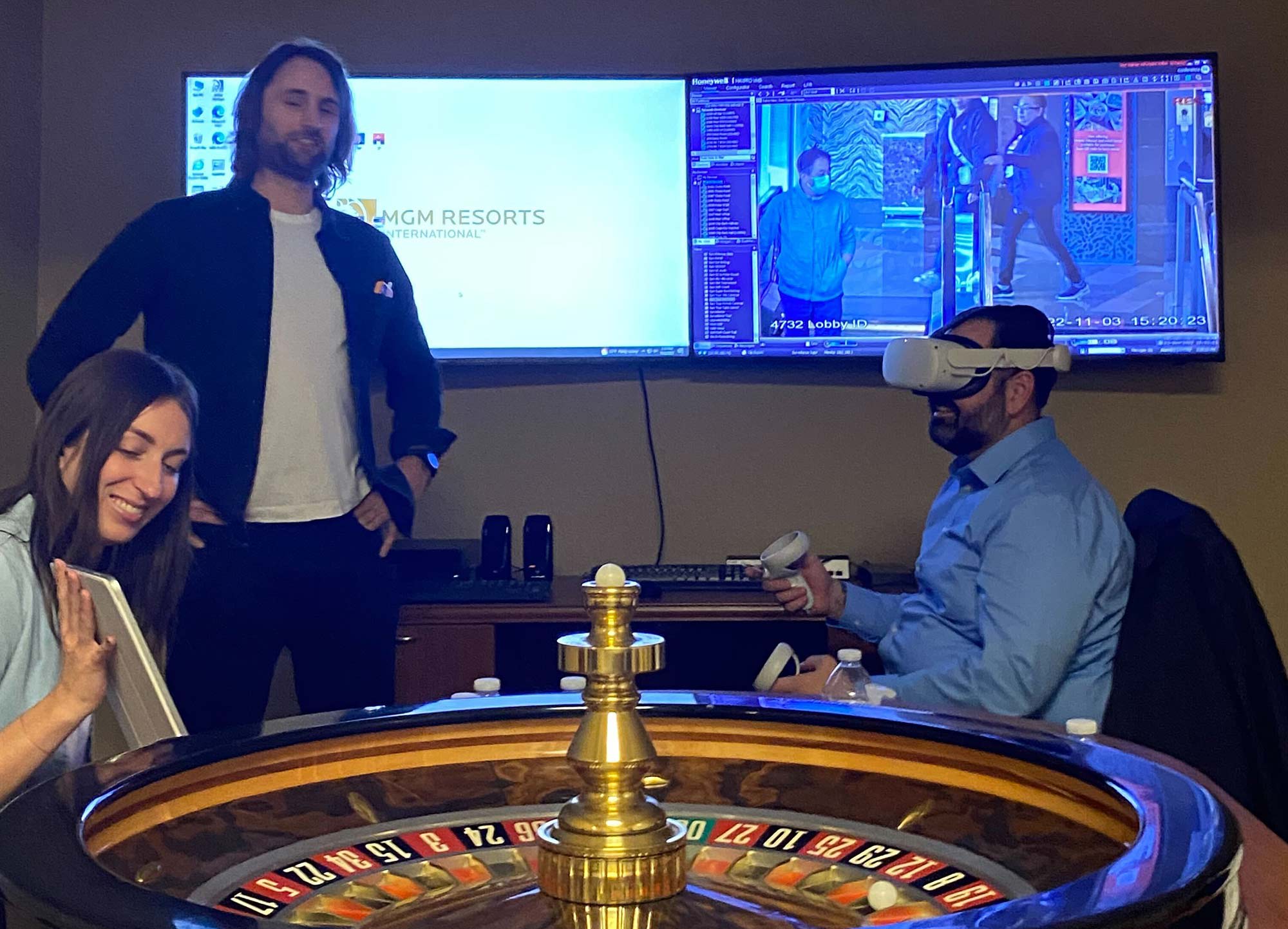
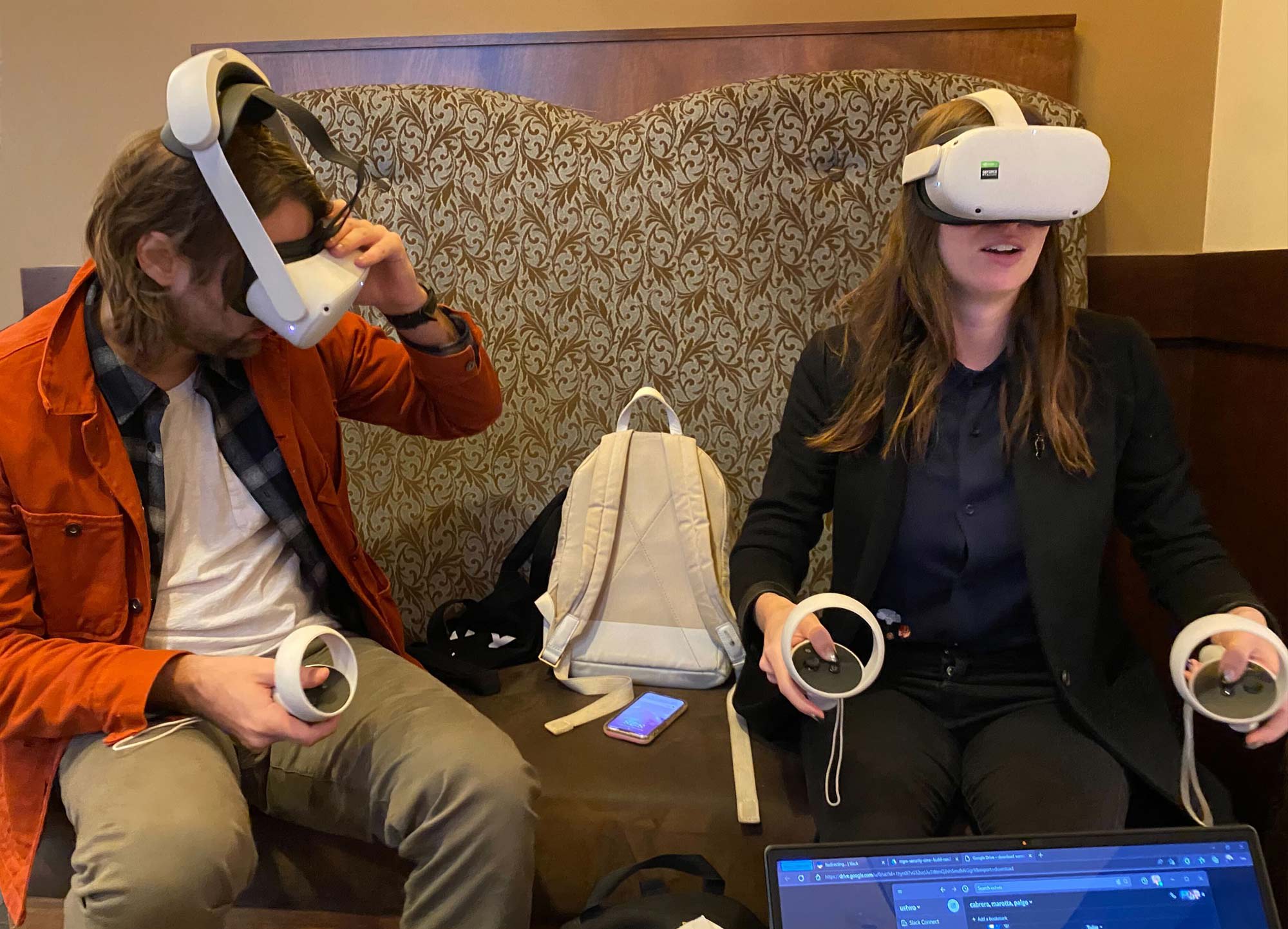
Why it matters
The most effective way to learn a new skill is by doing. Listening or watching can only take you part-way. Lived experience in a virtual world helps a person feel prepared for their job, especially in high-stakes professions such as security services.
Our first-of-its-kind security training program empowers a new generation of security professionals to feel confident when facing tricky situations in real life, reducing the need for costly onsite training, and opening access to cutting-edge technology for real people in everyday contexts.
We’re thrilled to have spoken about this project at AWE 2023 in Santa Clara, CA. Watch the full presentation here.